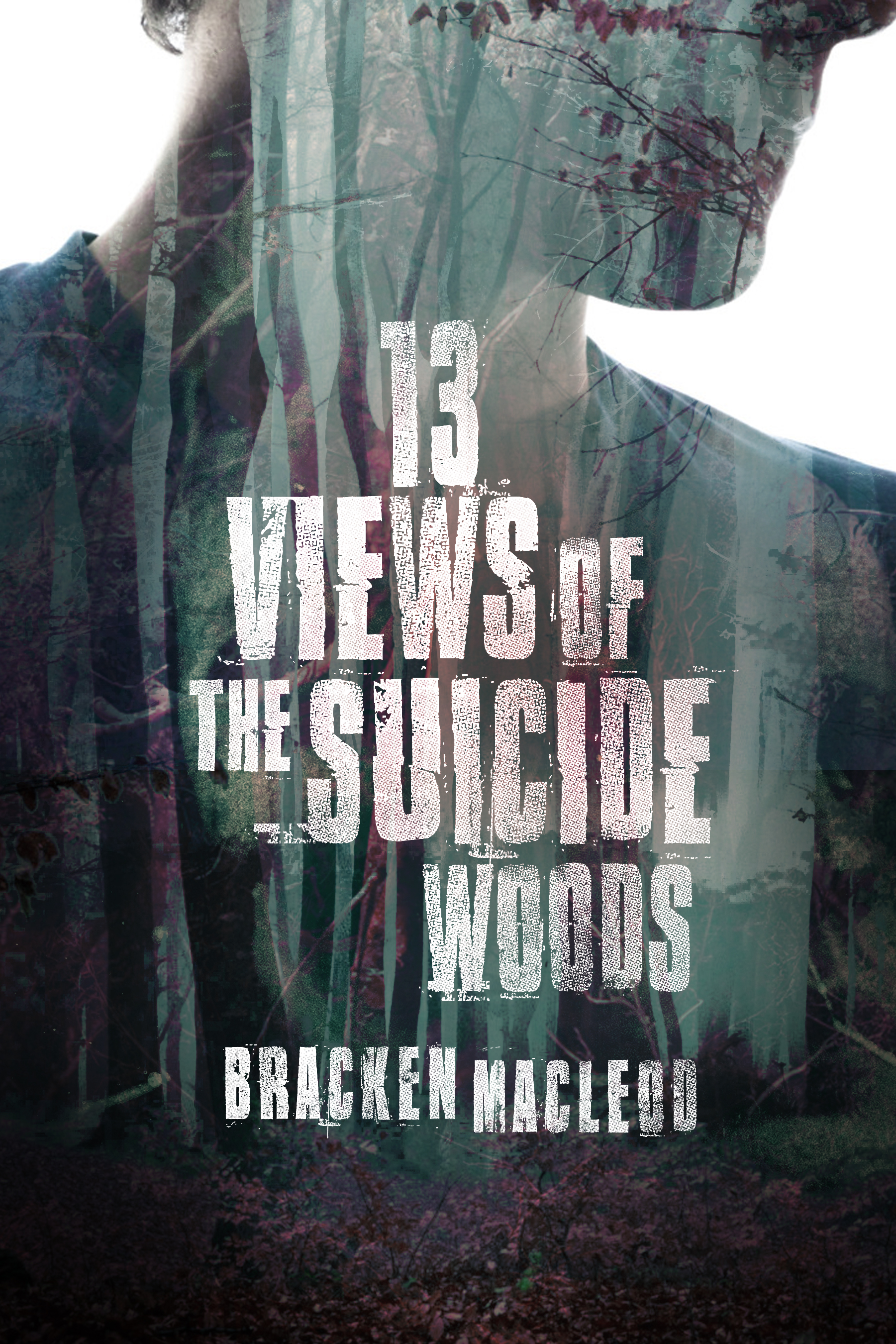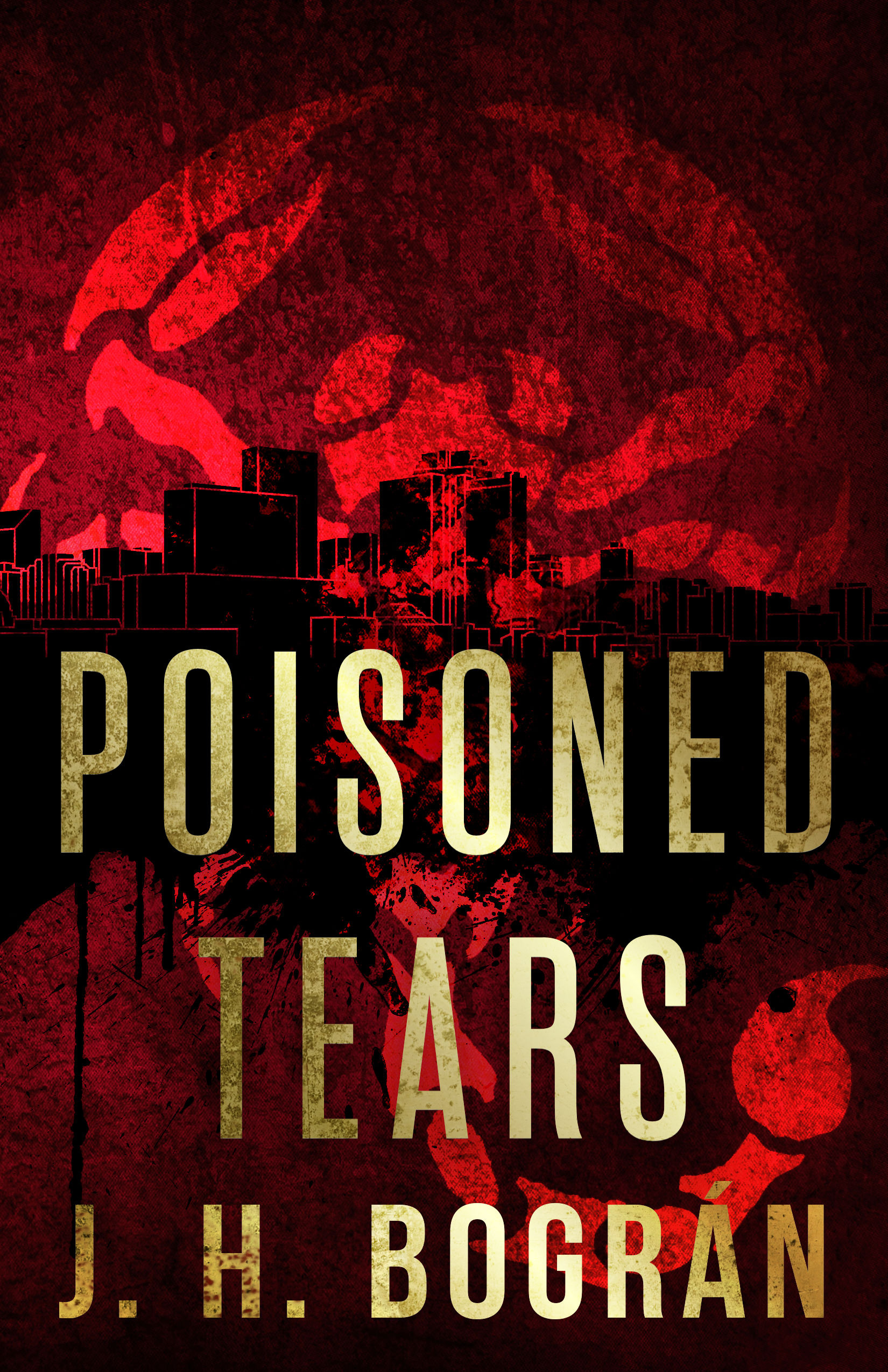Posted on Mar 21, 2017 by
Nick
This week on The Scariest Part, I’m delighted to have as my guest my dear friend Bracken MacLeod, a very talented writer whose debut collection is titled 13 Views of the Suicide Woods. Here is the publisher’s description:
From the author of Mountain Home and Stranded, comes Bracken MacLeod’s first collection of short stories.
These stories inhabit the dark places where pain and resignation intersect, and the fear of a quiet moment alone is as terrifying as the unseen thing watching from behind the treeline. In the titular story, a young woman waits for her father to come home from the place where no one goes intending to return. A single word is the push that may break a man and save a life. The members of a winemaking community celebrate the old time religion found flowing in the blood of the vine. A desperate man seeking a miracle cure gets more than a peek behind the curtain of Dr. Morningstar’s Psychic Surgery. A child who dreams of escaping on leather wings finds rescue in dark water instead. Looking back over a life, a homeless veteran must decide to live in the present if he wants to save his future. In a Halloween Hell house, a youth pastor must face the judgment of a man committed to doing the Lord’s work. Fiery death heralds the beginning of a new life. A man who has been carrying pain with him his entire life gives up his last piece of darkness. And a still day beneath the sun illuminates the quiet sorrow of the last feather to fall.
And now, let’s hear what the scariest part was for Bracken MacLeod:
For me, the scariest part of 13 Views of the Suicide Woods is a common thread weaving throughout almost all of the stories, which is the sense of being swept away by inevitability. What I mean is the feeling of powerlessness in the face of something dark and undeniable, which in that moment cannot be undone or overcome. It’s not the moment where things begin to go wrong, but the one where a person becomes conscious that things have gone wrong and there’s no way back. It’s the realization of it.
Several years ago, I was driving home from a friend’s house after a late night out gaming. It was about half past two and I was dead tired and had an hour on the road still ahead of me, so I was trying to get home quickly. But it was snowing, and I was going a little too fast in the storm and lost control. The car started to fishtail and while I was doing my best to correct the slide, it just kept getting worse. And before I realized how bad things had gotten, I was spinning completely around at 60 miles an hour on black ice headed for the median strip. I wasn’t sure when I hit the snow bank in the middle of the interstate whether the car was going to stop, or flip and roll into oncoming traffic. All I did know was that there wasn’t a thing I could do to prevent the car from sliding into it. The direction I was headed in was inevitable and the outcome — whatever it would be — was beyond my ability to alter.
We go through life focused on all the things we have planned, the things we’re doing right now, and then, all of the sudden, that instant arrives and you’re spinning out into the median — out of control, out of time, out of options. The only thing there is to do is hold on to the wheel, ride that moment, and hope it isn’t your last.
That’s the feeling I mean.
At some point in almost every one of the stories in 13 Views of the Suicide Woods, there’s an interval where the main character has this realization that they’re being swept away in the tide of something more powerful than they are. The choice they have is whether to swim with or against the current pulling them down. But by the time they grasp what’s happening, none of them can stop it.
If I were pressed to pick the very scariest of these moments, it would happen in the titular story. There’s a scene at the beginning where a character named Skip has gone to the woods intending to kill himself (he feels drawn there — more on that in a minute). He ties a noose, climbs a tree, and scoots off the end of the branch with the rope around his neck. And in that moment, as he’s falling, he understands with perfect clarity that this action is irreversible. He’s done a thing which has set the end of his agency in motion, and it’s too late for second thoughts. He chose to hasten inevitability and the existential realization is terrifying to him.
That one is scariest for me because while a person might walk into a bar with a gun, or an airplane engine could fail, those events are out of my control and largely unpredictable (to the extent that they’re extremely rare occurrences). However unlikely, one’s participation in them is forced; no one chooses be to a part of those experiences. Skip slipping off the branch is deliberately stepping into the void and letting go of control. As someone who occasionally experiences what the French call, L’appel du vide, it’s a terrifying idea to me. Standing on the edge of some high place, I often feel the pull in my body to just step out. I’m not suicidal, but the feeling is there, physical and intrusive. It’s my mind that prevents me from turning the wheel into the side of the underpass entrance or taking that step off of the subway platform. But then, I am not a dualist; my mind is a consequence of my body, and that’s what frightens me. Like a babysitter getting a call to check on the kids, the will to live and the death drive are coming from the exact same place.
Sigmund Freud wrote that “the aim of all life is death.” That is literally true to the extent that nothing living will continue to exist in that state perpetually. It’s the intersection where deliberate survival meets the inevitability of mortality that is the scariest part.
Bracken MacLeod: Website / Amazon Author Page / Facebook / Twitter
13 Views of the Suicide Woods: Amazon / Barnes & Noble / Powell’s / IndieBound
Bracken MacLeod is the author of the novels Mountain Home, Stranded, and Come to Dust. 13 Views of the Suicide Woods is his first collection of short fiction. Stranded, released last year by Tor Books, has been nominated for a Bram Stoker Award for Superior Achievement in a Novel. He lives in New England with his wife and son, where he is at work on his next novel.





